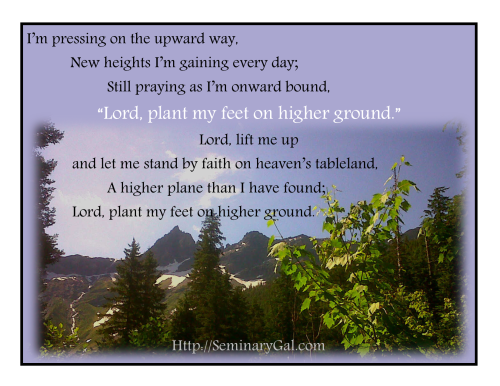I haven’t written a gardening post in a while, but it doesn’t mean that I haven’t been gardening this year. My body’s been in the garden every day, but my mind has been forever elsewhere.
You see, even while I’m gardening, I’m thinking theology. Take the other morning, for example. I went out to edge the beds and realized I needed to sharpen the tools. Without sharp tools that have a clean edge, the work is much harder. As one of my bosses used to say, “Work smarter, not harder.”
We need to sharpen our theological tools if we’re going to work smarter, not harder at Overcoming. Let’s review what we’ve seen in Overcoming thus far and sharpen the tools by which we’ll work through this week’s topics as “case studies.”
Remember that in John 16:33 Jesus told us,
I have told you these things, so that in me you may have peace. In this world you will have trouble. But take heart! I have overcome the world.”
We concluded that Overcoming always results in resumption of forward progress and with Christian overcoming, it also grows our faith, exhibits grace, and offers forgiveness. Overcoming doesn’t always take away the pain of the memory. It doesn’t necessarily remove the consequence of the hurtful action. But we can always make peace with the pain to where it won’t torment us anymore. Overcoming is not exactly the same as “getting over” something. It’s more like getting through to victory. It’s a pilgrimage where we’re ever on the path to our destination. We may crawl and hobble across the finish line some day, but by Overcoming, we’ll cross it.
So let’s make a chart. I like charts—it’s my Type A nature and logical side to like charts.
Consider it our sharpened tool box.
|
Principle & Scripture |
The Difference It Made for Jesus |
How We Can Apply It |
| Kingdom expectations;1 Peter 2:21 To this you were called, because Christ suffered for you, |
He expected suffering and did not deny its pain. But Jesus did not–even once–consider Himself a victim. |
We can expect suffering. Victimhood need not be our identity no matter how painful our circumstances may be. |
| Kingdom perspective;leaving you an example, that you should follow in his steps. |
He followed an intentional path to overcoming knowing that He was setting an example for others. He had a wider perspective of a bigger spiritual world and what it would accomplish for others. |
We can pick up our cross, deny ourselves, and follow Jesus. With a wider perspective that includes the spiritual realm, we can admit that we do not see all the work God is doing through our suffering. |
| Kingdom actions;22 “He committed no sin, and no deceit was found in his mouth.” |
He was sinless in order to pay for our sins. He was setting an example for how we approach suffering as God’s people. |
We can determine ahead of time to commit all things to God, not to lash out in anger or fear, and learn to approach suffering with honesty and gentleness. |
| Kingdom time frame;23 When they hurled their insults at him, he did not retaliate; |
Retaliation, Retribution, and Revenge are human tools. God will be the ultimate Judge and Jesus knew it. |
We can be patient knowing that God will vindicate all righteousness in the end. God may not act in our time frame, but He will act without delay in His own timing. |
| Kingdom power;when he suffered, he made no threats. Instead, he entrusted himself to him who judges justly. |
Since Jesus came from the Father, He knew the certainty of the Father’s will, His mighty power, and His perfect justice. Jesus knew that it’s not over until He opens the Book of Life. |
We don’t need an eye for an eye or a tooth for a tooth. We can trust in the certainty of God’s will, His power and His justice. We have His power (through the Holy Spirit) to sustain us until the very end when justice is done. |
Maybe you’re not the kind of person who likes summary charts. Let’s translate them into the 10 Commandments for Dealing with Suffering God’s Way:
- Thou Shalt Expect Suffering
- Thou Shalt Renounce Thy Lifetime Membership in the Pity Party for Perpetual Victims
- Thou Shalt Understand God’s Big Picture that “It’s All Connected”
- Thou Shalt Follow Jesus Because Human Vision is Limited, But God’s is Not
- Thou Shalt Holster Thy Human Weapons
- Thou Shalt Be Lovingly Honest in All Thy Dealings with God, Self, and Others
- Thou Shalt Exhibit Patience
- Thou Shalt Not Take Revenge or Even Zing Others While Waiting
- Thou Shalt Live Knowing that Not Every Action Requires a Reaction
- Thou Shalt Persevere in Doing Good, Trusting that It’s Not Over ‘Til the Lamb Opens the Book
Better yet, sometimes a picture is worth a thousand words to the Overcomer. Besides, you’ve probably already figured it out: I like pictures too. We’ll use these as we look at “case studies” tomorrow beginning with Overcoming Changes in Employment.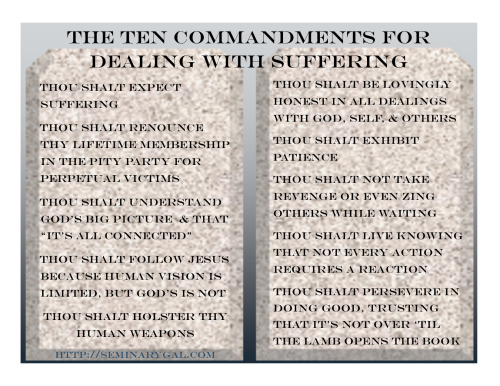
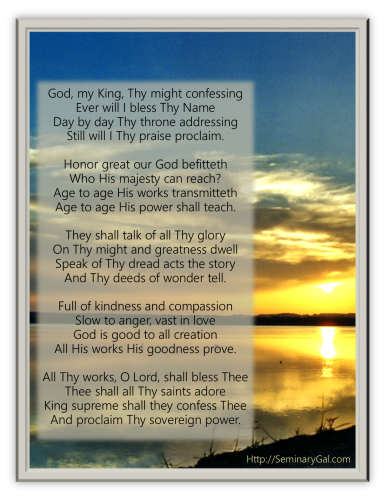 God My King Thy Might Confessing
God My King Thy Might Confessing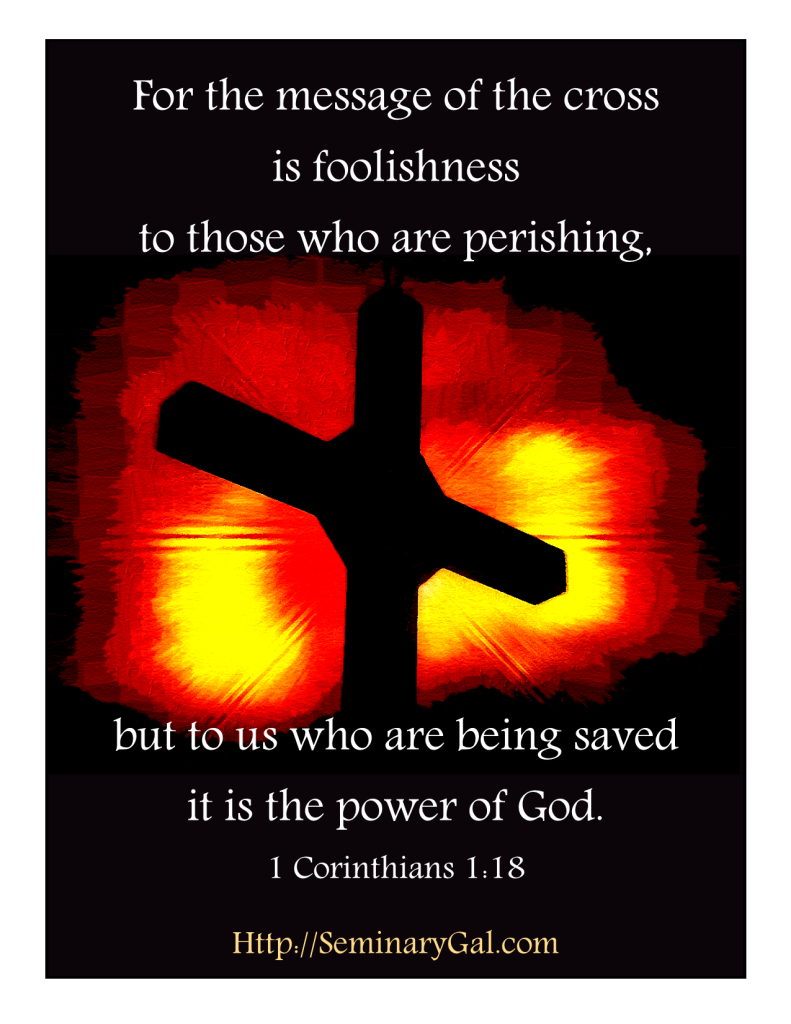 Human power would have fought back. Insult for insult. Prove yourself by returning strike for strike. Plot your revenge. Develop a human plan to save yourself.
Human power would have fought back. Insult for insult. Prove yourself by returning strike for strike. Plot your revenge. Develop a human plan to save yourself.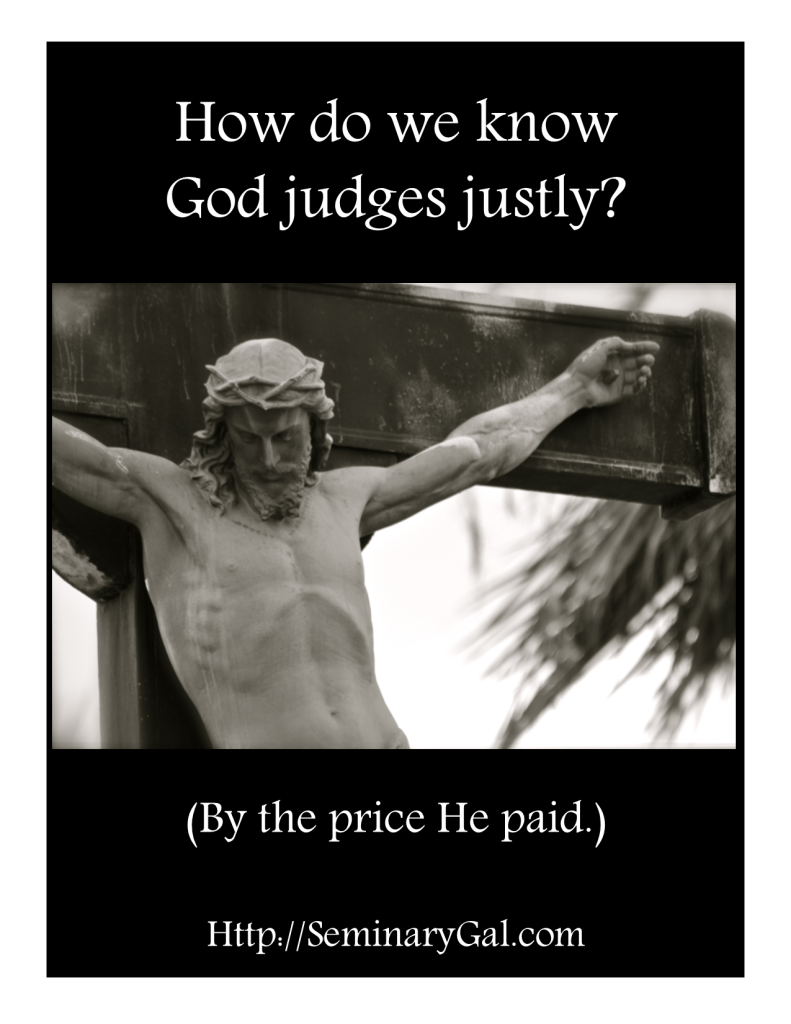
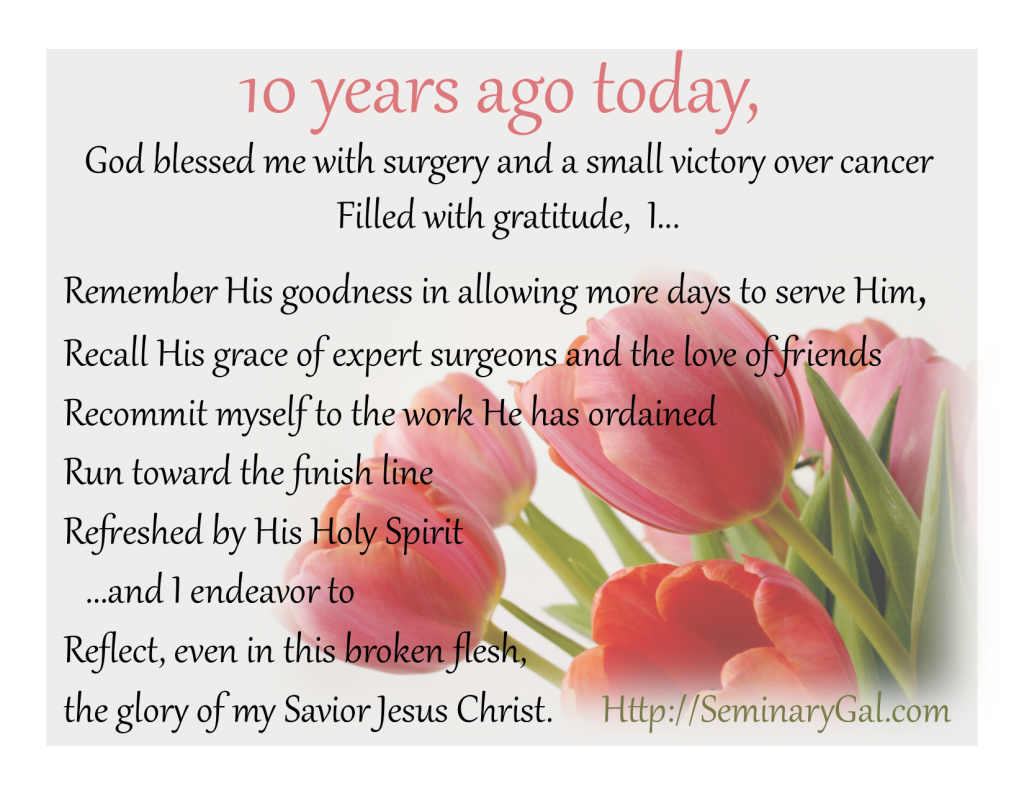
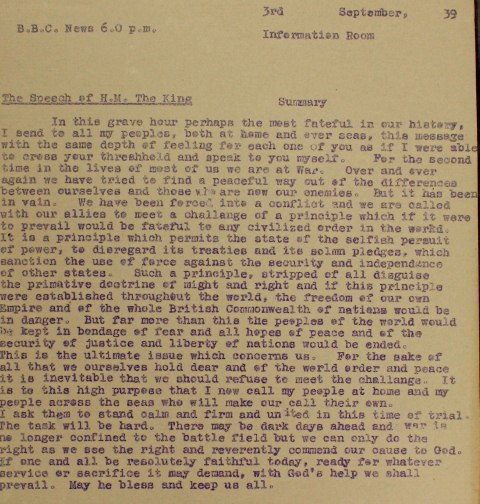
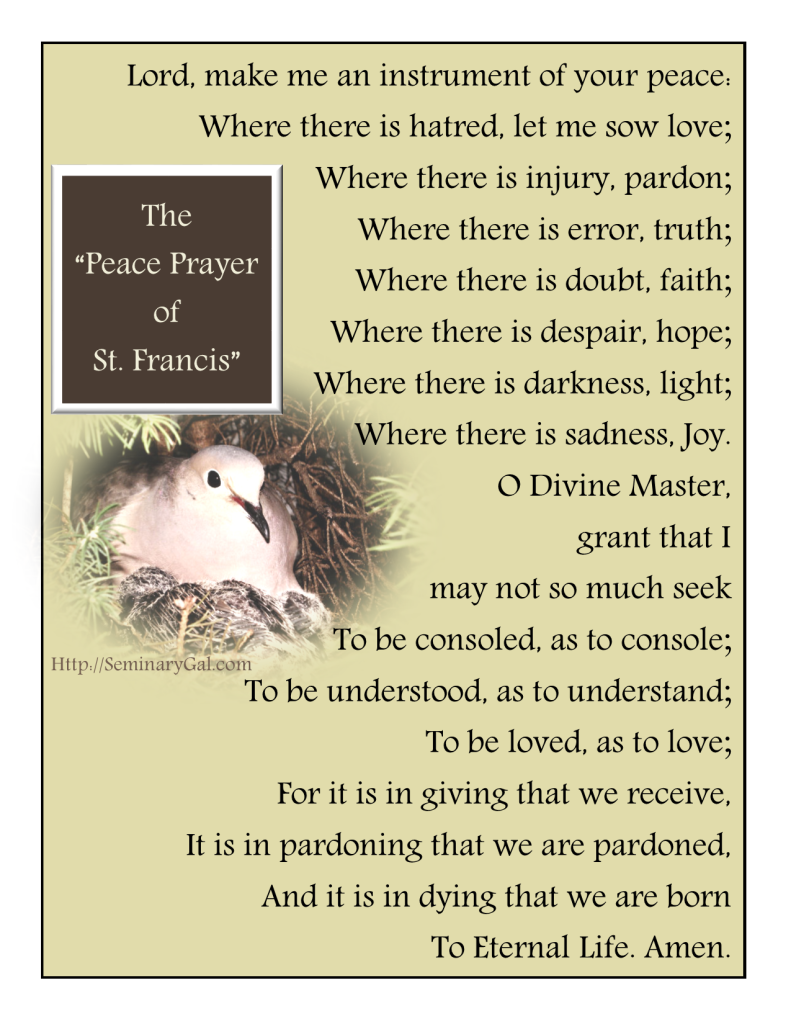
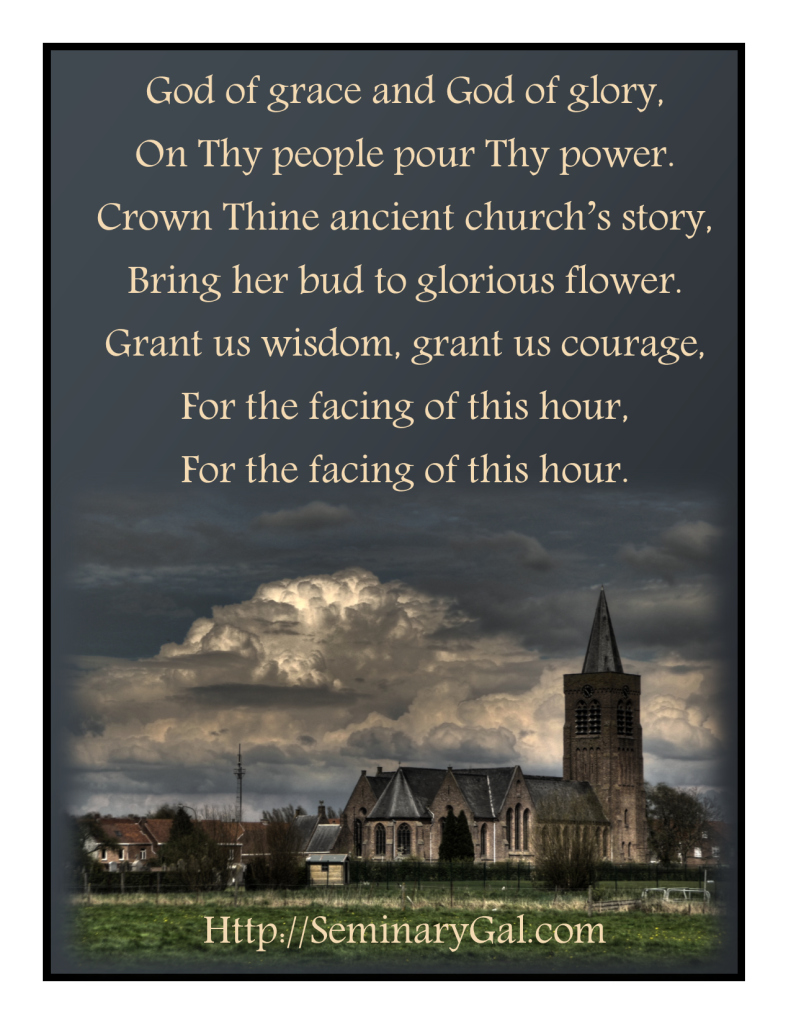 God of grace and God of glory,
God of grace and God of glory,
